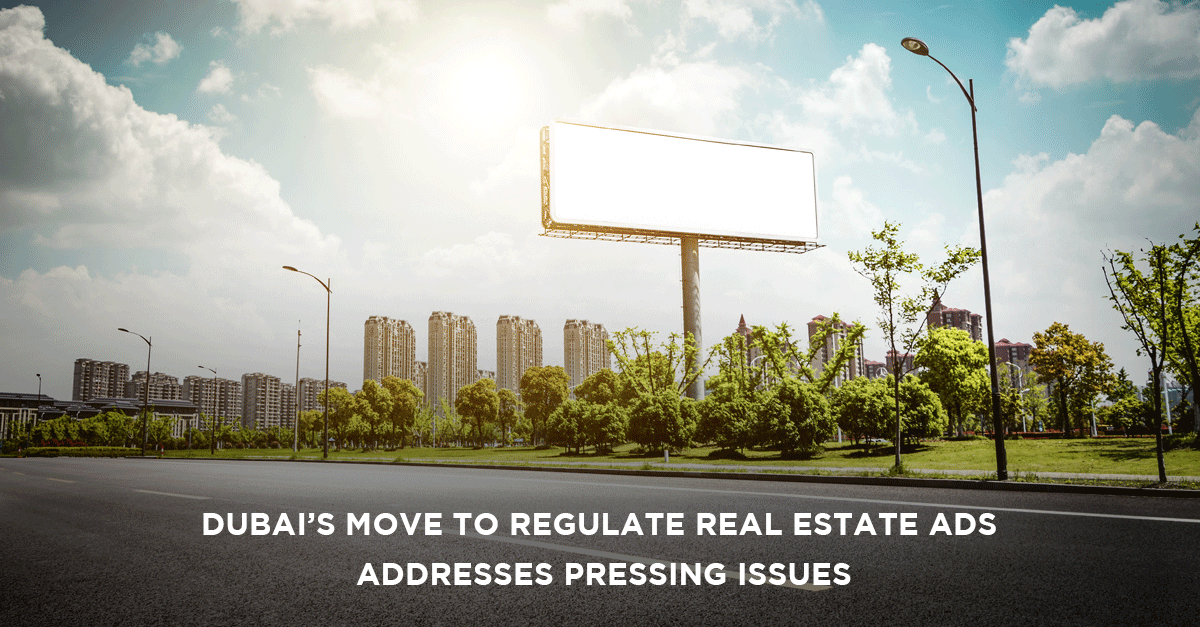Dubai’s move to regulate real estate ads addresses pressing issues
According to the Anti-Economic Crime Department of Dubai Police, 499 cases related to fraud were registered in 2018, leading to the arrest of 471 suspects (1). Brigadier Jamal Salem Al Jallaf, the Director of the Criminal Investigation Department of Dubai Police, estimates the amount associated with these cases to be in excess of AED 1 billion, besides the value of confiscated items. Around 104 cases, and a corresponding 136 arrests, were directly linked to fraudulent real estate related activities. Despite being significantly lower than many comparable real estate markets across the globe, the Dubai Police considers the number of cases a cause for concern.
Dubai is a preeminent safe haven for real estate investments of all magnitude. Boasting a robust legal framework and investor-friendly environment, the city’s reputation is unparalleled, in global real estate. With the reputation comes the responsibility to safeguard this status, and constantly work towards enhancing these strengths. A recent MoU between the Dubai Land Department (DLD) and the Telecommunications Regulatory Authority (TRA), aimed at jointly countering issues concerning real estate advertising, embodies such a responsible approach.
Cause for concern
As the information age continues to revolutionize the way business is conducted, cyber security has become crucial to operational integrity. Every market is rife with scammers using fake identities, websites and social media profiles to con unsuspecting customers. As real estate transactions tend to be capital-intensive, scams often involve large sums of money. Fake listings and unregulated agents are some of the most prominent causes of inconvenience to property seekers. In addition, the same property being listed at multiple prices, on different classifieds sites, has been reported lately. In a few cases, agents have reportedly listed nonexistent properties, and upon receiving enquiries, offered to show properties similar to the one that initially aroused the buyer’s interest.
The DLD has an existing Trakheesi system for lawful property listing, designed to safeguard the interests of landlords and customers. Permit number can be obtained through DLD’s application process, after an agent or an agency submits a NOC containing property details, location and building information. Upon paying the fees and obtaining the permit, the agent can lawfully list the property. Despite this efficient and easy-to-use permit system, a few listings on property portals, which were devoid of a Trakheesi permit number, have been identified.
The regulation
The MoU between DLD and TRA aims to regulate real estate advertisements within an operational framework, in a bid to curb misleading ads (2). Besides scrutinizing electronic advertisements on real estate portals and social media platforms, the partners will devise a mechanism to block such misleading websites and platforms, should they violate regulations. DLD will provide TRA with pertinent information, contact numbers, email addresses and links to all offending companies, along with the details of the violation and its legal ramifications. TRA, on the other hand, will ensure the implementation of the laws and takes necessary action, in case of non-compliance.
The timeline
The UAE police and Telecom Authorities jointly issued public statements in early 2018, warning residents of fake and misleading real estate advertisements. The Ministry of Interiors recommended that those responding to real estate advertisements verify the credibility and trade license of the company, before any substantial engagement. The TRA also ramped-up its public notification efforts, in response to growing concerns. Measures were taken to increase awareness and draw attention to cybercrime laws, the violation of which can elicit fines of up to AED 3 million or imprisonment, depending on severity (3).
The way forward
It is recommended that property seekers choose agents with verifiable antecedents, before initiating any monetary exchange. By looking up the agency’s credentials, expertise, market position and testimonials, property seekers can identify a trustworthy agent, who can address their requirements. The vast majority of agencies and brokerage firms in Dubai have welcomed the government’s decision to remove listings without a Trakheesi number from property portals (4). The latest MoU between DLD and TRA serves as a follow-up initiative to the government’s crackdown on misleading real estate advertisements.
The synergy between DLD and TRA is best suited to clean up the real estate market, enhance transparency and boost buyer confidence. The MoU precedes a watershed moment for Dubai, when the city is gearing up for epoch-making events and the real estate sector is poised for growth. As an issue that could potentially hamper real estate progress, and undermine Dubai’s standing as a secure investment destination, fake real estate ads certainly warranted appropriate action and, as always, Dubai has risen to the occasion.




